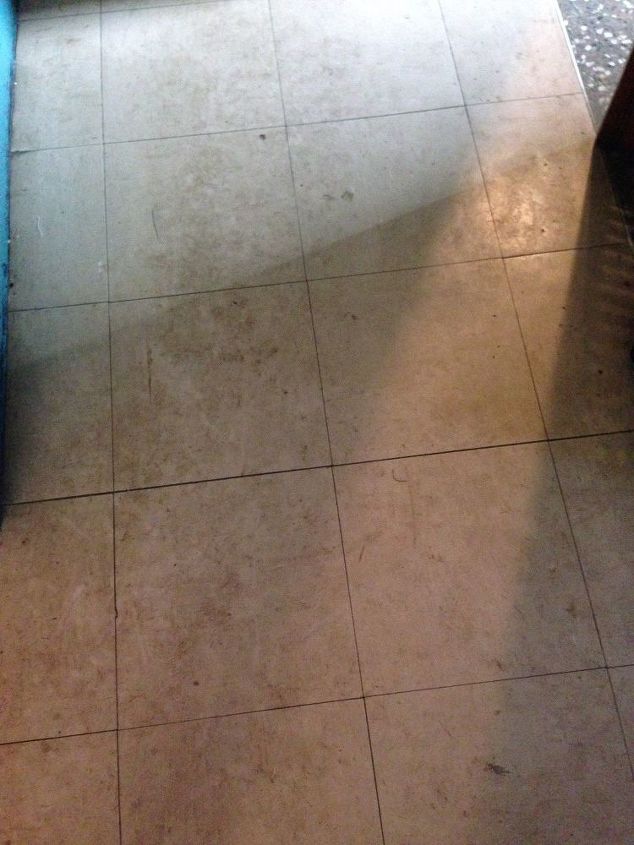Have you ever stood in your kitchen, staring at a stubborn stain on your vinyl floor, and wondered if a little ammonia might do the trick? We’ve all been there. Vinyl floors are a popular choice for their durability and affordability, but keeping them clean can sometimes feel like a battle. Many cleaning solutions claim to be the ultimate answer to all your floor woes, but is ammonia one of them? The answer is surprisingly complex, and it involves a mix of science, practicality, and a good dose of caution.

Image: floortechie.com
Let’s dive into the world of vinyl and ammonia, exploring the pros and cons, the potential risks, and ultimately, the best approach to cleaning your vinyl floors.
The Science Behind Vinyl Floors and Ammonia
Vinyl flooring, a widely beloved choice for its cost-effectiveness and ease of maintenance, consists of polyvinyl chloride (PVC), a synthetic polymer. It’s this material, with its non-porous surface, that makes vinyl resistant to water, stains, and scratches. However, that same non-porous surface is also what makes it trickier to clean than other types of flooring.
Now, let’s talk about ammonia. This colorless, pungent gas is a chemical compound that’s often found in household cleaners. It possesses strong cleaning properties, which is why many people are tempted to use it on their floors. But, it’s crucial to understand that ammonia is a powerful substance.
Why Ammonia Might Seem Like a Vinyl Floor Solution
Ammonia’s cleaning prowess stems from its ability to break down dirt, grime, and grease. It’s a powerful grease-cutter, which can be tempting for tackling tough stains on vinyl floors. But, it’s important to acknowledge that ammonia’s effectiveness on vinyl is more of a myth than a reality.
The Real Risks of Using Ammonia on Vinyl Floors
While ammonia might seem like a quick fix, it can actually lead to more problems than it solves:
- Damaging the Finish: Ammonia can strip away the protective finish on vinyl floors, leaving them vulnerable to scratches, stains, and discoloration. This can significantly reduce the lifespan of your floors.
- Causing Yellowing: Over time, repeated exposure to ammonia can lead to a yellowing effect on vinyl flooring, making your once vibrant floor look dull and aged.
- Harmful Fumes: Ammonia is known for its strong odor, which can be particularly irritating to people with respiratory issues, such as asthma or allergies. Mixing ammonia with other cleaning products can release even more toxic fumes, posing a significant risk to your health.
- Chemical Reactions: Many vinyl floor manufacturers explicitly warn against using ammonia. The combination can lead to unpredictable chemical reactions, potentially damaging the floor beyond repair.

Image: vinylplankflooringbeinstalledovertile.blogspot.com
What You Should Use Instead: A Safer Cleaning Approach
Now that we’ve established the downsides of ammonia, let’s talk about safer and more effective alternatives for cleaning your vinyl floors:
- Mild Detergent and Water: A gentle cleaning solution with a few drops of dish soap in warm water will effectively lift most dirt and grime without harming your floors.
- Vinegar: White vinegar is a natural cleaning agent that’s safe for vinyl floors and can break down grease and stains. Mix a solution of equal parts water and vinegar, and apply it to your floor with a damp mop.
- Baking Soda: Baking soda, a natural abrasive, can work wonders for removing stubborn stains. Create a paste with water and apply it to the stain, letting it sit for a few minutes before scrubbing.
- Commercial Vinyl Floor Cleaners: Opt for cleaners that are specifically designed for vinyl floors. These cleaners are formulated to be safe and effective, while also leaving behind a protective layer to maintain your floor’s finish.
Protecting Your Vinyl Floors for the Long Run
Cleaning your vinyl floors is just one part of the equation. Here are some additional tips for keeping your floors looking their best:
- Regular sweeping and vacuuming: Regular maintenance prevents dirt and debris from building up, making cleaning easier in the long run.
- Use Floor Mats: Place mats at entryways to trap dirt and moisture, preventing it from reaching your vinyl floors.
- Avoid Harsh Chemicals: Always check the labels of your cleaning products to ensure they’re safe for vinyl floors. Avoid those containing bleach, ammonia, or harsh abrasives.
- Protect from Water Damage: Vinyl floors are water-resistant, but they’re not waterproof. Promptly clean up any spills to prevent staining and damage.
Can You Use Ammonia On Vinyl Floors
https://youtube.com/watch?v=9aLvd4iE4qY
Remember: Your Vinyl Floor’s Best Friend
By avoiding harsh chemicals like ammonia and using gentle, eco-friendly cleaners, you can maintain your vinyl floors without jeopardizing their integrity. Remember, your vinyl floors are an investment. Taking care of them with proper cleaning and maintenance will ensure they stay beautiful and functional for years to come.






